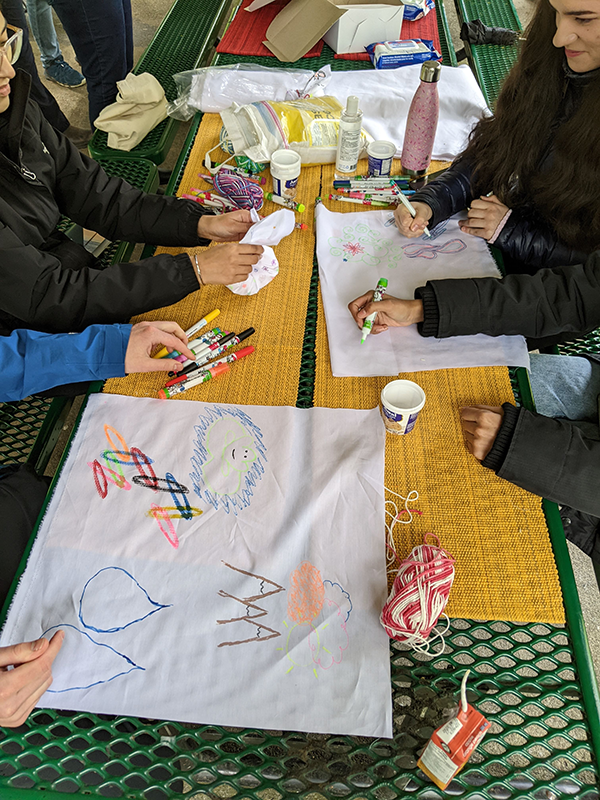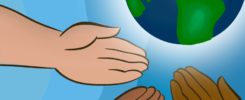One of the greatest benefits of getting involved with Co-Creating a Sustainable BC (CCSBC) is how it enables you to build connections with people who are similarly concerned about climate change. Having a sense of community and submitting to something greater than yourself is a fundamental human need, and a lack of such community can lead to loneliness, unfulfillment, and depression. Furthermore, not only does participating in community provide immense personal benefit, but it is also necessary if we are to effectively manage climate change.
Combating Isolation through CCSBC
COVID made many of us realize the importance of relationships in a way we hadn’t before. Cut off from family, friends, and other loved ones, many of us, myself included, struggled to maintain the critical connections that were taken for granted in the past. This is a common story and an experience we all shared. I was understandably excited then when I found out about this youth initiative organized by the Fraser Basin Council Youth Program. The idea of making new friends my own age while working towards something noble was very appealing!
Our first meeting as a group was held in-person at a nature reserve in Chilliwack. I remember being nervous, not only about this new program I was committing to, but also about the new people I would be meeting. I needn’t have worried, however. Our organizer immediately set the group at ease with fun icebreakers, and it wasn’t long before the anxiety subsided. After enjoying a beautiful tour through the reserve, we finished that first meeting lying on yoga mats on the floor, enjoying the silence together. This was one of my favorite moments from this experience.
My other favorite moment occurred during our last gathering. For our project, we had created a booklet that aimed to help young families manage their risk from climate-related hazards. To share this booklet with the community, we invited the public to join us for a launch event at Mill Lake in Abbotsford. Our team and members of the community used markers to decorate fabric that would be used in a DIY project. It’s a simple thing, but sitting around a picnic table creating colorful drawings and poking fun at each other’s artwork was a small moment of joy that I treasure.
Nor do these connections you make have to end when your project wraps up. I’ve kept in contact with other members of my cohort and look forward to further adventures and joint community involvement.
Fighting Climate Change through CCSBC
Building stronger communities will also be essential in the fight against climate change. Many of us are concerned about how we are treating our planet, but for most of us unfortunately, that concern only rarely translates into action. I know from my own experience that, alone, it is easy to become hopeless and apathetic about the environment. And as someone who had only limited experience in affecting community change, it was hard for me to even imagine what my first steps should be. I think most people feel the same way.
It felt wonderfully refreshing then to be surrounded by others who were enthusiastic, knowledgeable, and optimistic about climate change, and were ready to move beyond words and into action. In this environment, anything felt possible and ideas flowed freely. People shared their own individual strengths and talents with the whole group, and in this way, we accomplished far more than anything we could have done by ourselves. Looking back, I also really appreciate how this experience gave me a blueprint for further community engagement. From the initial research stage, to brainstorming project ideas, to designing and printing our booklet, to planning our launch event, this experience made it easier for all of us to continue to make change in a positive, collaborative manner. After all, we’ve already done it once!
In a way, the hardest part of the project was simply taking that first step to sign up, because this is the only step you must take yourself. This small step creates momentum though, which, if allowed to grow, can become something far bigger and more beautiful than any one of us.
And to me, that certainly sounds like something worth getting involved with.

About the author:
Jonathan Fitz is a 29-year old psychology student who always revels in the opportunity to get outside and be with nature. It was his great privilege to participate in the 2021-22 Fraser Valley cohort of the Co-Creating a Sustainable BC initiative.

